Volunteer Exchange Programs
Volunteer Exchange Programs
2018
Indonesia: An Introduction to Peace and Transitional Justice in Asian Contexts
Mr. Iftekhar Sahariar completed his LLB and LLM from University of Rajshahi and had internship experience with USAID, BLAST and been a member of UNYAP-BD. Now he is serving as an Assistant Judge of Bangladesh Judicial Service.
Here is what our former Research Assistant Iftekhar Sahariar says about this course:
I was privileged to be nominated from Center for the Study of Genocide and Justice (CSGJ), Liberation War Museum to attend the Asia Justice and Rights (AJAR)’s intensive course titled “Foundations for Peace: An Introduction to Peace and Transitional Justice in Asian Contexts” in Bali, Indonesia from May 30- June 4, 2018. Transitional Justice (TJ) Activists, scholars and researchers of Italy, Australia, Myanmar, Sri Lanka, Thailand, Indonesia’s Aceh Province, Papua Province, Java participated in this program.
The intensive course was designed to enlighten the participants about the different context of TJ starting from the root cause of mass atrocities. The participants were taught elaborately about the Truth seeking, prosecution, reparation process and Institutional reforms which are regarded as the TJ Framework. Participants of different province of Indonesia, Thailand, Sri Lanka, Myanmar shared their context of different aspects of TJ. The participants were trained in the theoretical studies of different aspects of TJ in context of countries throughout the world in the six days long residential course.
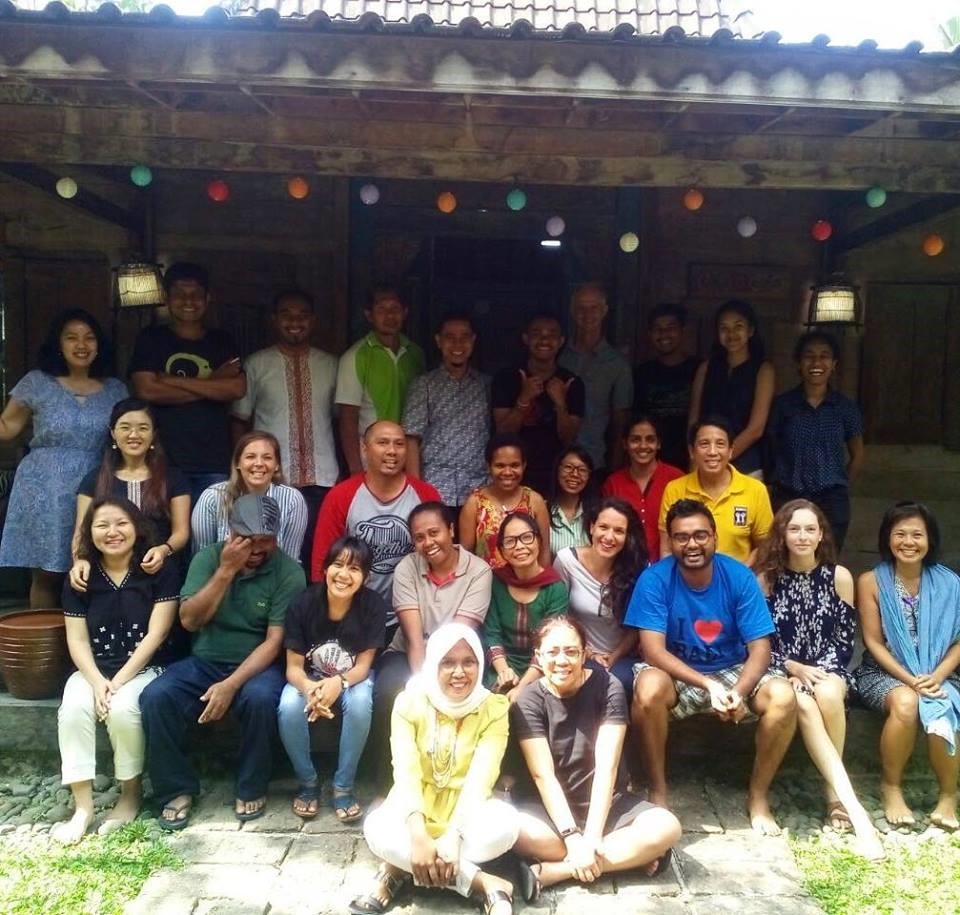
Throughout the different session which included the group work and sharing session I had the opportunity to share the experience of Bangladesh in ensuring justice for the war criminals for the international crimes committed in 1971, the justice process of ICT-BD, victims movement for justice and aftermath of the trial. I shared the context of Bangladesh’s journey to bring the long due justice for the war crimes, Crimes against Humanity, and Genocide through the ICT-BD and challenges faced by it in the process. On the segment of Victims and Survivours Movement I shared the movement of Gono Adalot (People’s Tribunal) movement of our country which played significant role to create the mass awareness for the justice for the crimes committed in 1971. I also had the chance of presenting the findings of research conducted by CSGJ in the Rohingya camps located in Ukhiya, Coxsbazar while the participants from Myanmar shared their country’s experience in conflicts. Throughout the course I came to know about the different aspects of conflicts and aftermath in the region and their journeys to TJ. After the completion of course, I learned well about the regional conflicts and equipped with necessary skills to approach to the road of justice together.
Indonesia: Gender Justice: Empowering Women Survivors of Conflict through Community Documentation, Healing, and Advocacy
Ms. Nasrin Sultana, our 2nd Winter School Graduate and a volunteer to the CSGJ is currently serving at the UNHCR Bangladesh. Earlier, she has completed her LLB and LLM from University of Chittagong and worked as a Lecturer at the Cox’s Bazar International University.
On behalf of Liberation War Museum, Ms Nasrin Sultana participated in the AJAR Training on Trainers titled “Gender Justice: Empowering Women Survivors of Conflict through Community Documentation, Healing, and Advocacy .”It was organized by Asia Justice and Rights (AJAR) ,27 – 31 August, 2018 at Bali, Indonesia. The training took place at the Kampung Damai (AJAR Learning Centre),Bali, Indonesia. Participants of the ToT were from Singapore, Malaysia, Thailand, Sri Lanka, Nepal, East Timor, Philippine, Myanmar, Indonesia , Australia, USA and Bangladesh. This training aimed to facilitate the empowerment of activist and women survivors to deal with trauma by developing culturally appropriate, sustainable, community-based healing methods that recognize victims’ needs. The training looked at ways that women’s groups could engage policymakers and government officials in addressing their issues, and develop open and well-managed women survivors’ collectives that work with officials to strengthen access to services. Participants gained skills to support survivors and their advocates to access needed services and assistance.
The topic of this training include: Transitional justice and the impact of conflict on women, Understanding gender Justice, Introduction to participatory action research, Understanding and developing inner awareness as a community facilitator, From inward awareness to community movement building, Integrating psychosocial approach into community based rehabilitation, Stone and Flower participatory tools (Stone and Flower, Body Mapping, Post Card and Memory Box , Village Mapping and Photo Story), Action and Innovation for advocating women’s right, Memorialisation and community exhibition.
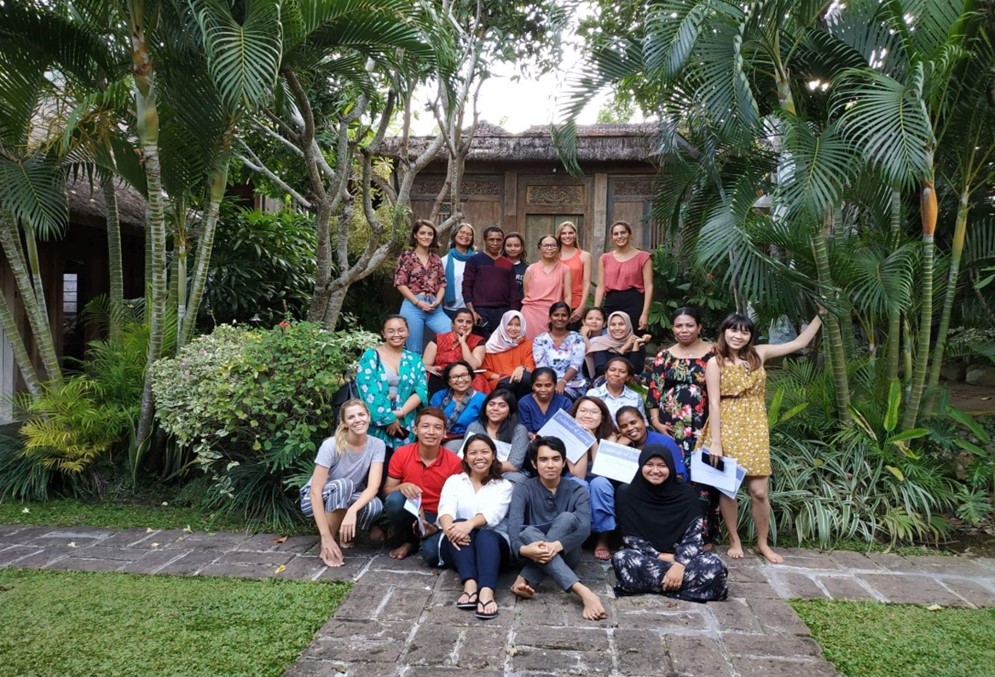
A critical part of this long-term goal was to combat impunity for past atrocities in Asia is to create processes that empower survivors, particularly in countries in transition where legacies of mass violations remain unaddressed. That Training of Trainers (TOT) aimed to facilitate the empowerment of activist and women survivors to deal with trauma by developing culturally appropriate, sustainable, community-based healing methods that recognize victims’ needs. Participants gained skills to support survivors and their advocates to access needed services and assistance. The training looked at ways that women’s groups could engage policymakers and government officials in addressing their issues and develop open and well-managed women survivors’ collectives that work with officials to strengthen access to services. The goal was to support women victims to voice their issues in their communities and become capable to demand quality services from government agencies. The TOT focused more specifically on how community-based memory and healing initiatives could strengthen recognition from government and citizens and fulfill women victim’s rights. This training will also help victims’ groups to increase their skills for self-care, trauma healing and advocacy in order to address their marginalization, identify root causes of conflict and repression, and fulfill their right to reparations, including access to social services and rehabilitation.
Germany: Study Trip on Gender, Power, Knowledge and Memory Politics
Ms. Naureen Rahim is currently the Coordinator at the Center for the Study of Genocide and Justice and completed her LLM in International Humanitarian Law and Human Rights from University of Geneva. Ms. Shaoli Dasgupta is a volunteer at CSGJ and serving in BRAC as a Legal Compliance Officer. She has completed her LLB from BRAC University and has been involved in CSGJ’s Rohingya Research Project.
In October 2018, a Study trip followed by a workshop was held in Berlin, Germany titled “Gendered Perspectives on Genocide, Power, Knowledge and Memory Politics”. LWM represented by Naureen Rahim and Shaoli Dasgupta participated in the Study Trip and the workshop at the invitation of the EMMIR Institute of the Carl von Ossietzky University Oldenburg. The institute hosted 12 students from various countries and were guided by Professor Dr. Katharina Hoffman throughout the trip. The study tour focused in creating a platform to exchange ideas and theories among young scholars in matters of Genocide, Memory Preservation, and Gender Perspectives in light of the German Colonial Genocide and the Genocide of Bangladesh.
The participants embarked onto a journey of visiting the renowned historical memorial sites, institutions and exhibitions situated in Berlin such as the Memorial to the Sinti and Roma of Europe, The Parliament of Germany, Memorial to the Homosexuals persecuted by the Nazi regime, The House of the Wannsee Conference, The Nazi Forced Labour Documentation Centre, Memorial to the Murdered Jews of Europe, Topography of Terror etc. Each visit was followed by an in depth discussion in identifying the patterns undertook by the Nazi regime in conducting the colonial genocide. The participants also visited a former concentration camp, namely Sachsenhausen Memorial and Museum which today holds an exhibition depicting the events and gruesome actions that were performed on the captive prisoners.
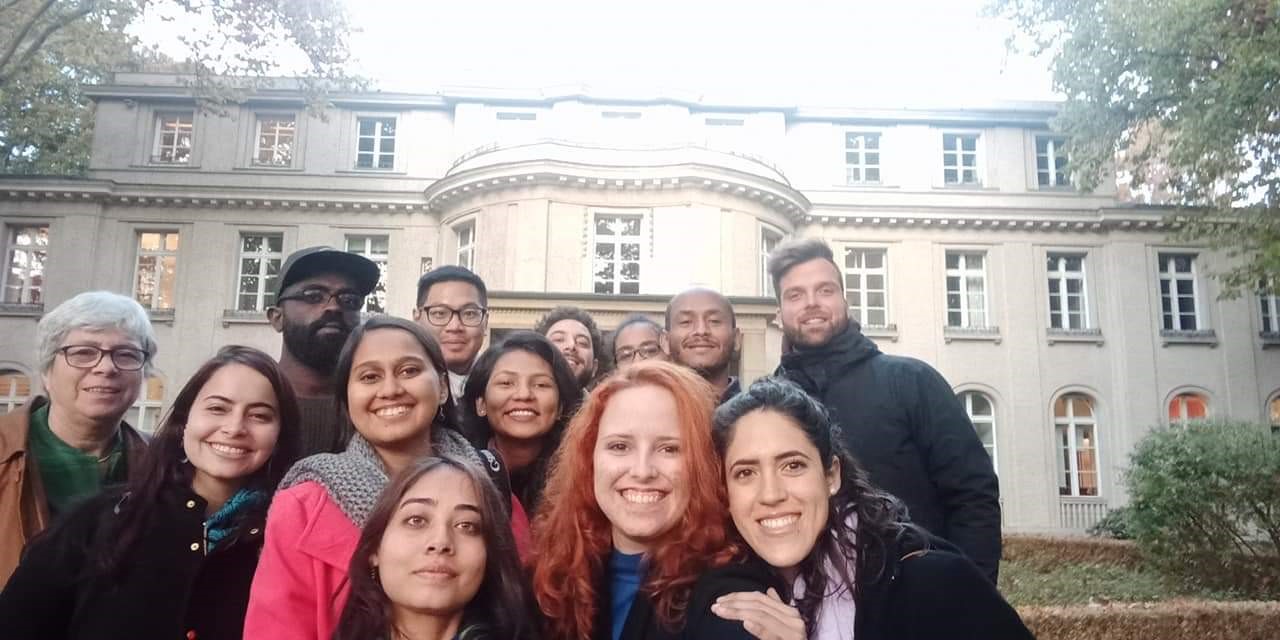
At the end of the study trip, the follow-up workshop was held in the Carl von Ossietzky University Oldenburg. The representatives of LWM presented on the on-going Rohingya research project of the Liberation War Museum and mainly focused on providing a situation analysis on the Crisis and the patterns of Genocide.
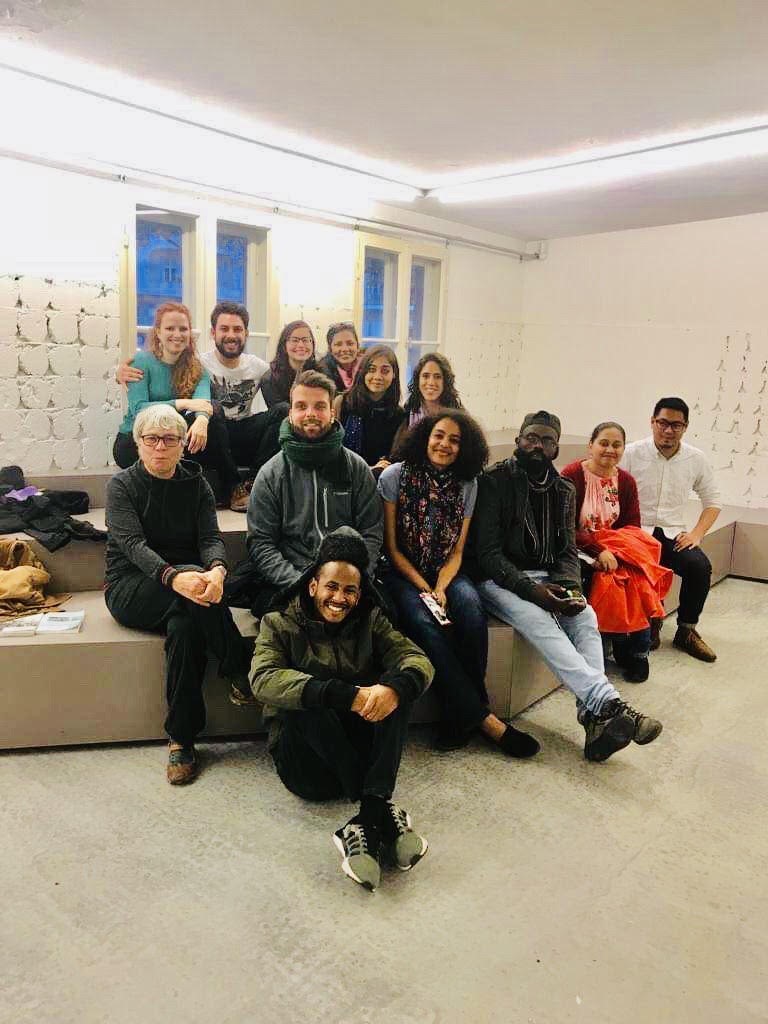
The representatives also presented on the Genocide of Bangladesh highlighting landmark events that lead to the liberation of Bangladesh. The representatives further discussed on the importance of memory preservation and the role of LWM in Bangladesh in achieving the notion of ‘never again’ to prevent genocide.
UK: ‘Changing the Story’- Project Development Workshop for Early Career Researchers
Emraan Azad is a Commonwealth Scholar who is currently studying International Law at the University of Cambridge and serving as a Lecturer in Law from Bangladesh University of Professionals. He has been one of the long term volunteer who has been contributing to Liberation War Museum since 2011.
Emraan had the opportunity to represent CSGJ, LWM in the workshop titled ‘Changing the Story’ Project Development Workshop for Early Career Researchers, organised by World Cinemas and Digital Cultures at Leeds, University of Leeds, on 25th-26th October 2018 at British Council, London, UK.
Changing The Story is a four-year international, multi-disciplinary project which supports the building of inclusive civil societies with, and for, young people in post-conflict countries. It is a collaborative project between universities, INGOs, artists, grassroots civil society organisations and young people across the world.
Emraan is currently one of co-investigators in the joint research project of Cambridge University and LWM on gender, justice and human rights for the Rohingya people.
Watch Emraan Azad’s short interview about the workshop at: https://vimeo.com/301396679
Indonesia: Revisiting Transitional Justice and Accountability in Asia
Ehshan Mazid Mustafa (Nirjhar) is currently working as a Lecturer at Law in Khulna University. He has completed his LLB and LLM from Department of Law, Rajshahi University. After that he joined as a Lecturer of Law at ASA University in 2018 and later on at Uttara University in 2019. Along with he has served as Research Associate at Center for the Study of Genocide and Justice (CSGJ), Liberation War Museum. Here is what he says about CSGJ Volunteer Exchange Programs that he attended-
In November, 2018 I got an opportunity to represent Center for the Study of Genocide and Justice (CSGJ), Liberation War Museum on two programs of Asia Justice and Rights (AJAR), Bali, Indonesia .
The first one was a workshop titled ‘Foundations for Peace: Revisiting Transitional Justice and Accountability in Asia’. This five-day program was designed to bring together practitioners and educators from regional contexts to share lessons learned from the field, and affirm key principles and best practices for accountability. The participants were from Indonesia, Myanmar, Thailand, Philippines, Sri Lanka, Nepal, India, USA, East Timor, Thailand etc. In the first day, after introducing with one another there was a session on an overview on ‘Transition in Asia’ and after that mapping transitional justice contexts in Asia which included conflict context, timeline and analysis. In, the next few days there were sessions and discussions on right to truth, truth seeking process & mechanism, concept & practice of reparations, building victims support, institutional reforms, impact on war or conflict to women and children, cross cutting challenges and issues around transitional justice in Asia etc. There were discussions and presentations on the prospects and challenges of peace process and truth seeking in Asia especially case study in Philippine, Indonesia, Sri Lanka, Myanmar. There I presented a case study on the practices of transitional justice in Bangladesh.
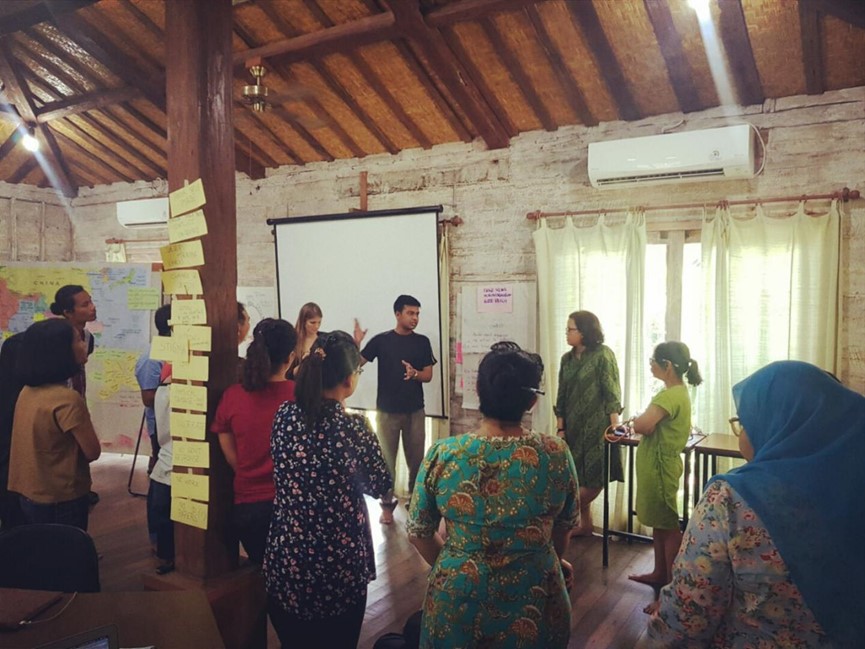
I also attended a conference titled ‘The Prosecution of Serious Human Rights Violation in Asia’ with Dr. M. Hasibul Alam Prodhan, Professor, Department of Law, Rajshahi University as representatives of CSGJ. The conference aimed to increase understandings of the innovative responses to entrench impunity in Asia and build the capacity of those initiatives to advance human rights in the region. There were presentations of international and regional experts, knowledge-sharing discussions, practical group activities as well as well as opportunities for participants to discuss informally their experiences and build community. At the first stage there were discussions on Prosecutions Overview: History & Crimes. Then there were some parallel sessions on different court structure and their functional details e.g. Hybrid Courts of Cambodia, Timor-Leste, Sierra Leone or National Courts of Bangladesh, Indonesia, Thailand. Along with there were discussions on the universal jurisdiction of ICC as well as it’s role in Asia, for example the Preliminary Investigations in the Philippines and Myanmar; then the context of Fact-Finding Missions (FFMs) in Myanmar, Sri Lanka as well as Independent Mechanisms in Myanmar and Syria. The participants also discussed and shared opinions on some sensitive issues like victim & witness protection, investigating mass crimes & evidence gathering, prosecuting gender based violence. There were some parallel sessions on strategic litigation and CSO’s initiatives in different regions. Finally the program ended with some case studies.
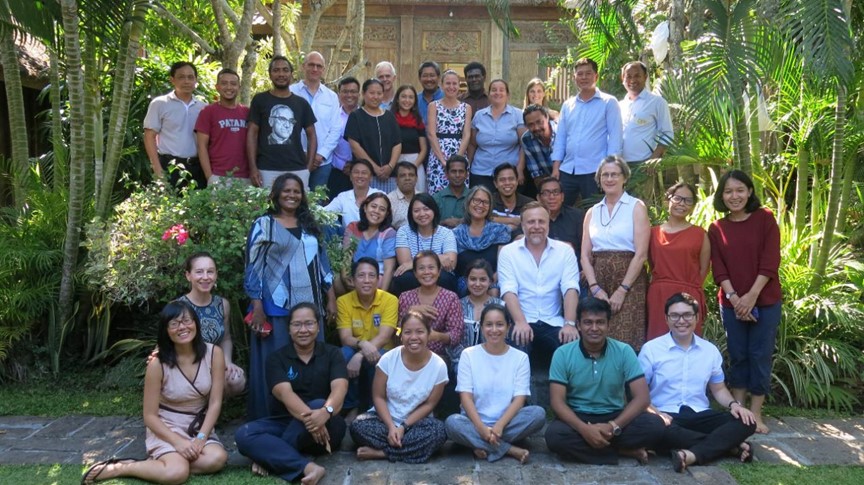
2019
Sri Lanka: Travel Seminar
Md. Pizuar Hossain is working as a Senior Lecturer at the Department of Law, East West University. He is CSGJ’s 2nd Winter School Graduate and has been involved as a volunteer of the Center. Here is what he saying about his experience in Sri Lanka-
I started the year of 2019 with an exalted opportunity to represent the Center for the Study of Genocide and Justice (CSGJ), Liberation War Museum (LWM), Bangladesh in a genocide scholars’ travel seminar in Sri Lanka. This event took place from 02 to 14 January 2019 at Colombo, Jaffna, Batticoloa and Kandy, Sri Lanka. I was the only Bangladeshi participant in the program along with a number of emerging scholars, senior scholars or professionals who are working in the fields of Genocide Studies and Prevention, History, Memory Studies, Museum Studies, Cultural Heritage Preservation Studies and intersecting fields of socio/political and cultural expression.
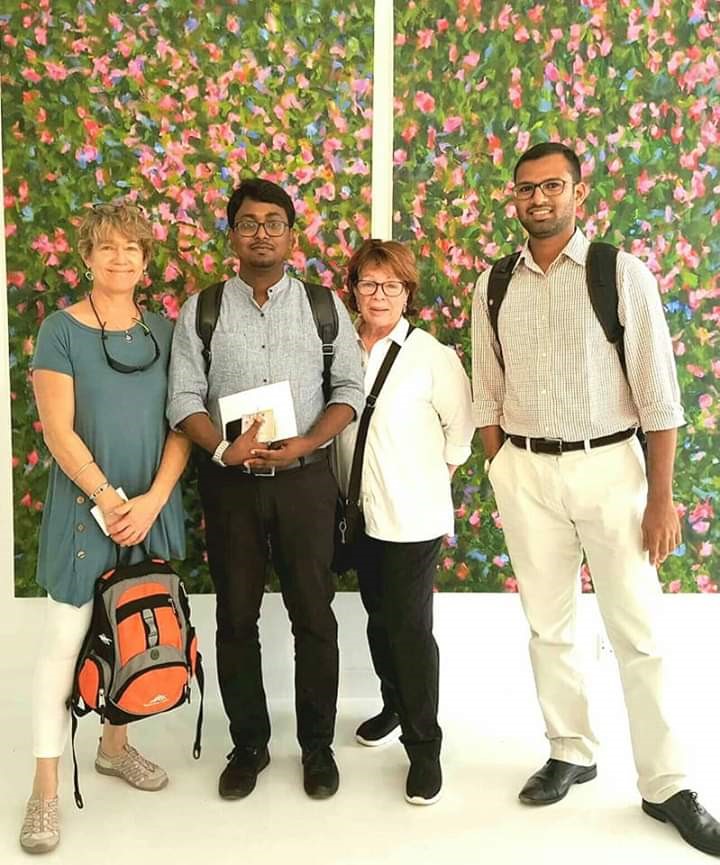
We made educational tours of memorials, museums, and other state institutions of 4 districts of Sri Lanka namely: (i) Colombo: South Asian Center for Legal Studies, Center for Poverty Analysis CEPA, Women’s Education and Resource Center, University of Colombo, Office of National Unity and Reconciliation, and GIZ -FLICT; (ii) Jaffna: Center for Peace and Reconciliation, Center for Women’s Development and Rehabilitation, Centre for Performing Arts, Jaffna Social Action Center, and Adayaalam Center for Policy Research; (iii) Batticoloa: Suriya Women Development Organization, and Butterfly Peace Garden; and (iv) Kandy: Institute for Social Development. We also conducted meetings with local artists, scholars, experts and survivors; and representatives from government commissions, civil society organizations, and survivor advocacy groups.
This program developed my understanding of the social patterns that led to the conflicts within Sri Lanka, and of their reconciliation processes and challenges of post-conflicts. In addition, it helped me to set up a survey introduction to memory and museum studies and their individual and collective educational and cultural expressions. Last but not least, I explored the array of memory sites, and commemoration and remembrance educational and cultural activities and sites of conscience across the heart of the nation.
CSGJ’s Participation at the IAGS Conference in Cambodia
Three volunteers of CSGJ, Ms. Shaoli Dasgupta, Mr. Md. Pizuar Hossain & Mr. Emraan Azad got the opportunity to present their papers on Rohingya genocide as the members of the thematic panel of the CSGJ, LWM in the 14th Conference of the International Association of Genocide Scholars (IAGS) which was held from 14 to 18 July 2019 at Phnom Penh, Cambodia. Two of the volunteers were awarded scholarships by the IAGS authority for attending the conference. The team has also visited the Tuol Sleng Genocide Museum, and the Choeung Ek Genocidal Center which is a mass grave of victims of the Khmer Rouge as part of the conference agenda.
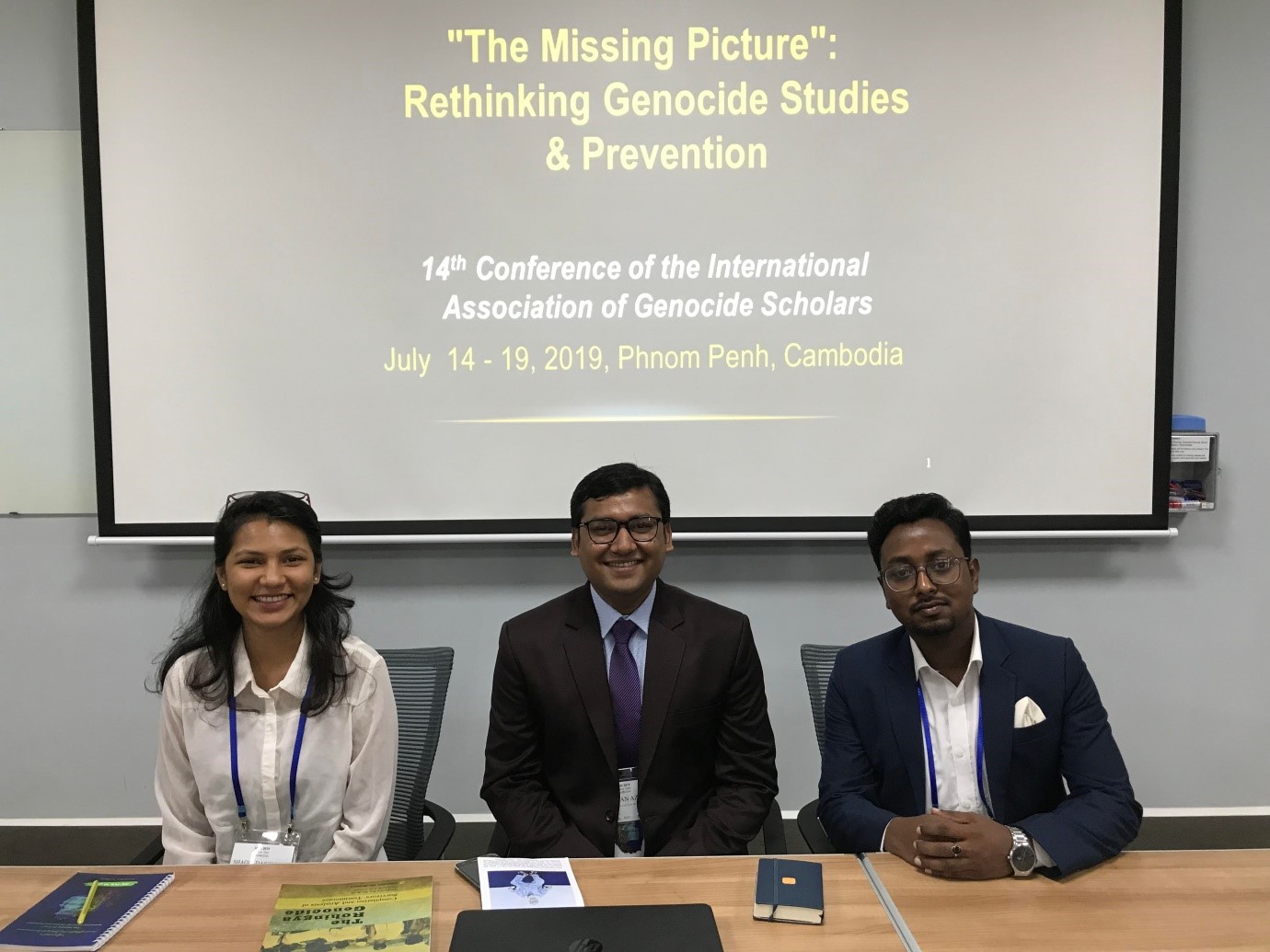
The Netherlands: Workshop on Documenting International Crimes
Global Rights Compliance (‘GRC’) has organized a CSO Workshop in the Hague, the Netherlands, funded by Knowledge Management Fund, which was held on 28-29th November 2019. On behalf of the Center, Ms. Naureen Rahim was selected to attend the workshop.
This workshop included a number of sessions related to the documentation and investigation of international crimes and focus groups on the use of the BIS App. GRC has provided the attendees with specialised training on the use of the BIS App conducted by GRC’s expert team of international lawyers. This training was tailored to the specific needs of the organisation and provide the opportunity for continued engagement on the use of the App during the course of documentation activities. GRC thereafter, had invited all Test Users to provide feedback on the utility and functionality of the BIS App to aid future development and improvement.
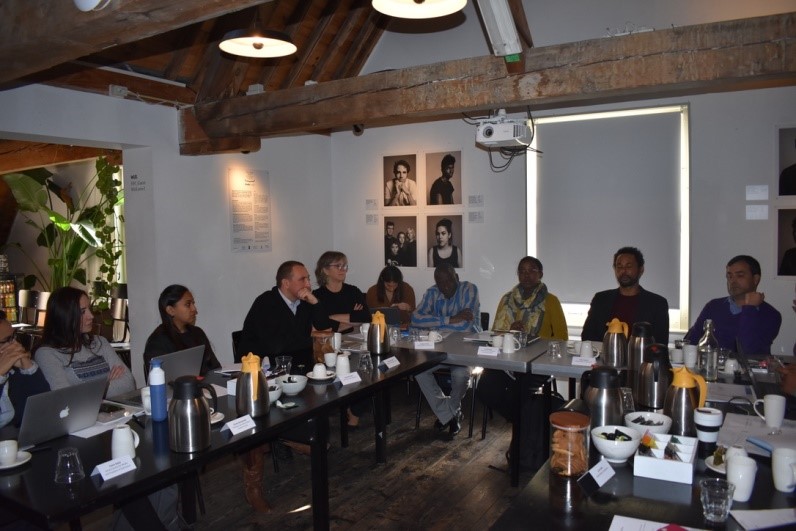
As part of this fully funded trip, Naureen has received the opportunity to explore the city of Hague, and visited the International Court of Justice and International Criminal Court.
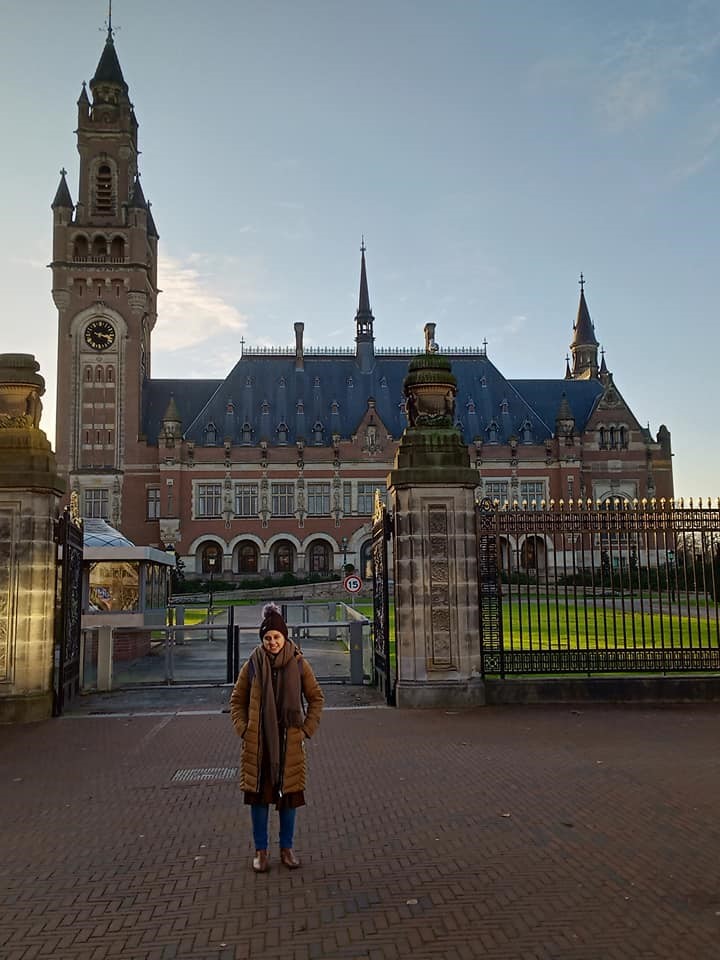
2020
German Online Workshop: Searching for Traces of Forced Labor: Experiencing a Digital Study Camp
International Youth Meeting Centre (IYMC) of the Nazi Forced Labor Documentation Centre, Berlin, in cooperation with Service Civil International, organized its First edition of Digital Study Camp from August 17- 28, 2020 consisting of 15 young and energetic participants from over the world: South Korea, China, Cambodia, Bangladesh, Turkey, Spain, Italy, Germany, Serbia, Russia, Ukraine and Mexico. During the digital study camp, the participants got an opportunity to prepare a digital photography exhibition on the topic of historical or contemporary forced labor around the world.
Discussing the history of Nazi forced labor, introducing the Nazi Forced Labor Documentation Centre, engaging the participants to the Photography Project through in numerous interactive sessions using digital energizers led the participants to learn more on the said topics. This study camp also came up with basic photography lessons to accompany this process so that participants around the world could capture this global issue through camera and present them visually using photography. The sessions also coached on how to read or interpret the true meaning of photographs that represent history. They let the participants to create social media (Facebook, Instagram) contents throughout the study camp.
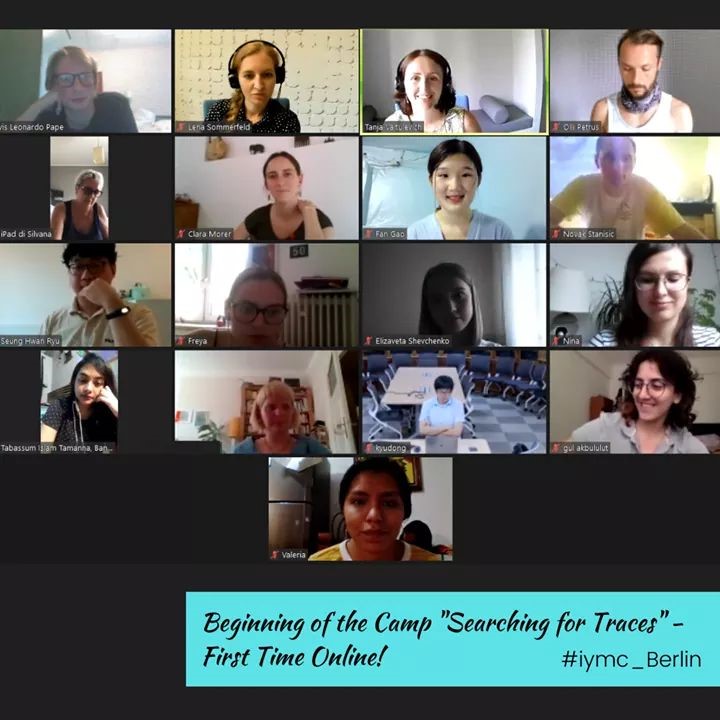
Among all the other participants, Tabassum Islam Tamanna who is a volunteer of CSGJ was nominated by the Liberation War Museum to represent Bangladesh. She is studying Law at Bangladesh University of Professionals. Her project ‘Shattered Dreams’ portrayed child labor as a forced labor and how it being penalized in Bangladesh, still crippling the lives of many unprivileged children by collapsing the child’s dreams and childhood. In her photos she used some props like toys, cars, balls, board etc. Through that she wanted to represent the childhood but in the photos the audience would be able to detect the odd prop out which was a hammer. The hammer was the representation for ‘child labor’. Instead of playing or studying, a child’s life changes through the replacement of a hammer. In some other photos, she photographed those children’s interests in education. In Bangladesh for the past 10 years, primary education has brought so many positive changes. The campaign for ‘education for all’ has a drastic impact on the working class as till primary and secondary education, government schools offer free education including free books. However, the irony lies in the life of some children who are bound to do the labor for the sake of poverty despite having immense interest in education. Thus she named this series as ‘shattered dreams’.
Each project was different than of others. However all those photography projects aligned together by portraying the chronology of forced labor: the past and the present. They altogether agreed in the future, there must not be any form of forced in any part of the world.

